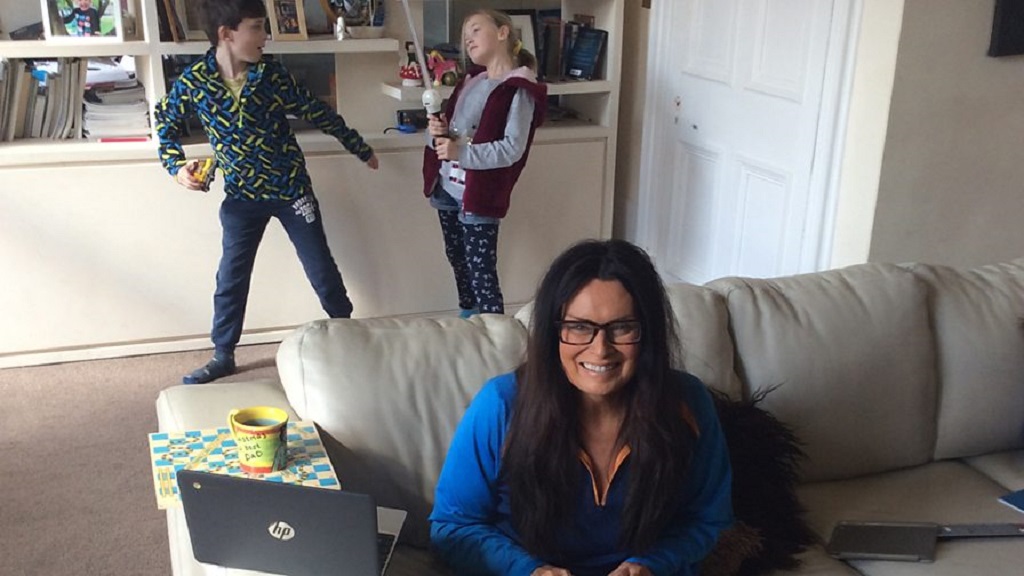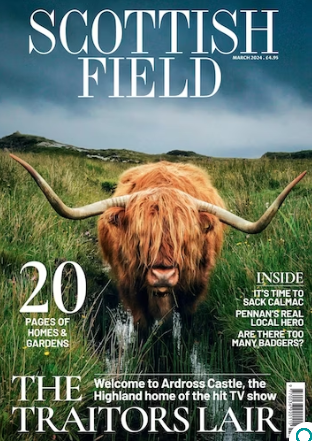Reporting on a pandemic while trying to keep staff safe is a huge challenge.
With Scotland in lockdown with the coronavirus, we all want to know the facts about what is happening, not just here, but across the UK and indeed the world.
That is proving to be a challenge to BBC Scotland, who are trying to maintain their news broadcasts but also protect the healthy of the broadcasters and production teams.
Gary Smith, head of news at BBC Scotland, said: ‘These are difficult and worrying times for all of us. For staff at the BBC, like everywhere else, there are constantly escalating stresses and strains, both at work and in our personal lives.
‘In BBC Scotland we are acutely aware that what we do each day has never been more important to our audiences than it is now. The quality, accuracy, clarity and trustworthiness of the public service broadcasting that we are producing has a vital role to play at this moment of national jeopardy.
‘We know it’s vital because people in Scotland are turning to the BBC in record numbers, more than to any other broadcaster, because they trust us to give them the facts.’
Over the past couple of weeks audiences for Reporting Scotland on BBC One at 6.30pm have topped 700,000, figures not seen since the Beast from the East swept through the country two years ago.
On the day when the Prime Minister and First Minister announced lockdown, a special live programme, produced by The Nine team, was watched by more than a million people.
And hundreds of thousands are tuning in to special additional Politics Scotland programmes each day to cover the Scottish government briefings on coronavirus. These usually go out live on BBC One Scotland, the BBC Scotland channel, Radio Scotland, and are streamed live on the BBC Scotland News website.
Gary continued: ‘The Nine on the BBC Scotland channel has recorded the highest ever audience since it launched just over a year ago.

Gary Smith, BBC Scotland head of news and current affairs (Photo: BBC Scotland / Alan Peebles)
‘On Radio Scotland, we’ve had loads of appreciation for our new schedule of news programmes across the day, starting at six every morning with Gary Robertson and Laura Maxwell on Good Morning Scotland. We’ve added in – for our radio audiences across the whole day – updates on breaking news, even on our non-news programming.
‘And our BBC Scotland News website, with its live pages, analysis and context, has doubled its readership.
‘But the BBC – not surprisingly – is not immune from the impact of the virus. More than ten per cent of BBC Scotland’s workforce is either self-isolating, shielding or actually unwell, and sadly we can only expect that figure to grow.
‘We’re making changes to the way we work – for example, reducing the numbers of people in our TV and radio studios, so that we can comply with the two metre social distancing rules. Most of our interviewees appear via Skype.
‘Our radio presenters, including Gary Robertson and Laura Maxwell on Good Morning Scotland and Drivetime host John Beattie, are presenting many of their programmes from home – from sitting rooms, attics and kitchens. Even Judith Ralston and the rest of our weather team are, for some of their time, working from home.
‘Although our reporters and technical staff are designated as key workers and are able to move around legally to do their jobs, we are limiting their movement as much as possible. Last week we ran a story on Reporting Scotland about the effect of the virus on Arran without any of our staff travelling there: all the material was filmed for us by the local residents.
‘We’re moving staff from other production areas into news, while still trying to protect as much of our non-news programming as possible: In the absence of live sport and other programmes, we’ve discovered huge audience enthusiasm for classic comedy and sport.

BBC Scotland weather broadcaster Judith Ralston working from home
‘In the space of just a few weeks, our business has been transformed. And the effect of our staff shortages means that something has had to give. We’ve had tough decisions to make about where we cut back. I never want to lose any output, but we just don’t have the people now to carry on with everything we do.’
Viewers to BBC Breakfast will have noticed that there is no Scottish news at present.
Gary explained: ‘We’ve stopped – temporarily – our short Breakfast TV bulletins. It’s a decision we’ve reluctantly had to take across the whole of the BBC in Scotland, England, Wales and Northern Ireland, in order to protect our output through the rest of the day. The Breakfast programme will of course still be on the air, but without our brief inserts of news from Scotland, the other nations and the English regions. Normal service will be resumed as soon as possible.
‘For our legions of regular viewers at breakfast time in Scotland a full news service can still be found on BBC Radio Scotland, BBC Radio nan Gaidheal (for Gaelic speakers), and the BBC Scotland News website.
‘In addition to pausing the Breakfast bulletins, we are also having to reduce the length of some of our Gaelic news programmes; we’ve temporarily stopped making The Edit and Seven Days, our weekly news review on the BBC Scotland channel. We may need to look further at what news output we need to stop doing while Coronavirus is at its peak.
‘So the suspension of our Breakfast bulletins is not some conspiracy, as a few people on social media have suggested over the weekend. It’s about the realities of coping with high levels of sickness, realities also faced by network news teams in London, who are having to cut back and simplify their output; and by our colleagues at STV, who have announced cutbacks to what they can do.
‘Coronavirus is affecting everyone and everything we all do.
‘In these anxious days and weeks, what we do at BBC Scotland News has never been more important to our audiences across the country. I’m very proud of the dedication and commitment of our news teams in providing the information that everyone is crying out for. And very grateful to the millions who are trusting the BBC to help them make it through the biggest national crisis most of us have ever known.’
TAGS

